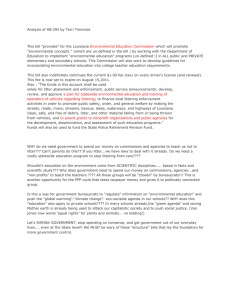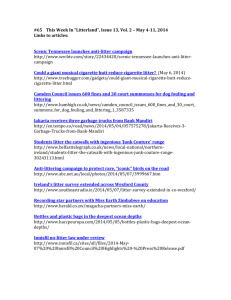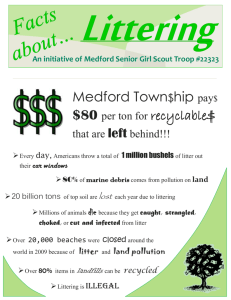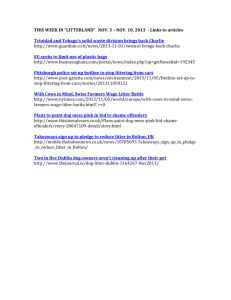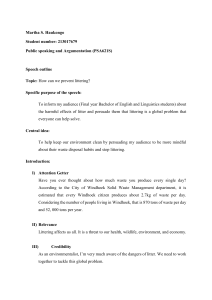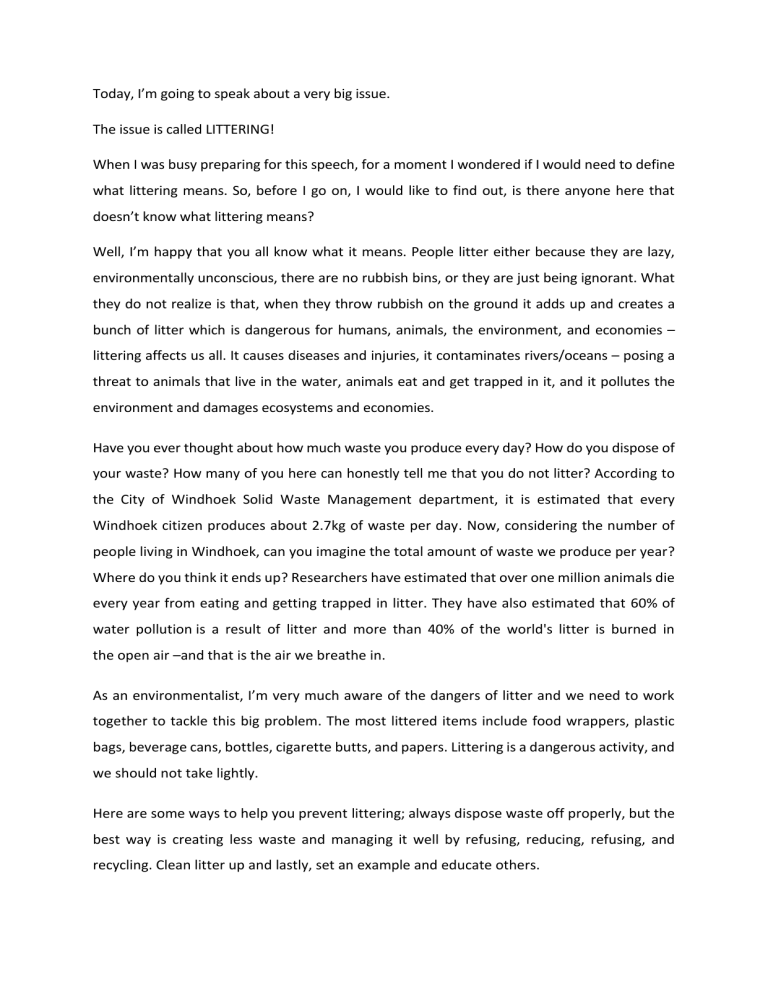
Today, I’m going to speak about a very big issue. The issue is called LITTERING! When I was busy preparing for this speech, for a moment I wondered if I would need to define what littering means. So, before I go on, I would like to find out, is there anyone here that doesn’t know what littering means? Well, I’m happy that you all know what it means. People litter either because they are lazy, environmentally unconscious, there are no rubbish bins, or they are just being ignorant. What they do not realize is that, when they throw rubbish on the ground it adds up and creates a bunch of litter which is dangerous for humans, animals, the environment, and economies – littering affects us all. It causes diseases and injuries, it contaminates rivers/oceans – posing a threat to animals that live in the water, animals eat and get trapped in it, and it pollutes the environment and damages ecosystems and economies. Have you ever thought about how much waste you produce every day? How do you dispose of your waste? How many of you here can honestly tell me that you do not litter? According to the City of Windhoek Solid Waste Management department, it is estimated that every Windhoek citizen produces about 2.7kg of waste per day. Now, considering the number of people living in Windhoek, can you imagine the total amount of waste we produce per year? Where do you think it ends up? Researchers have estimated that over one million animals die every year from eating and getting trapped in litter. They have also estimated that 60% of water pollution is a result of litter and more than 40% of the world's litter is burned in the open air –and that is the air we breathe in. As an environmentalist, I’m very much aware of the dangers of litter and we need to work together to tackle this big problem. The most littered items include food wrappers, plastic bags, beverage cans, bottles, cigarette butts, and papers. Littering is a dangerous activity, and we should not take lightly. Here are some ways to help you prevent littering; always dispose waste off properly, but the best way is creating less waste and managing it well by refusing, reducing, refusing, and recycling. Clean litter up and lastly, set an example and educate others. Let us all start being mindful about how we dispose waste off and stop littering. Litter is disgusting. So are those who are responsible for it. I thank you.
